How Do You Picture the Life of a Happy Pig?
Pigs are considered among the most intelligent of mammals. They’re self-aware and even smarter than dogs. Moreover, they’re very clean and they divide their living space into areas used for sleeping, eating, playing, and relieving themselves—just like humans.
But more importantly, just like us, they feel pain, fear, and grief.
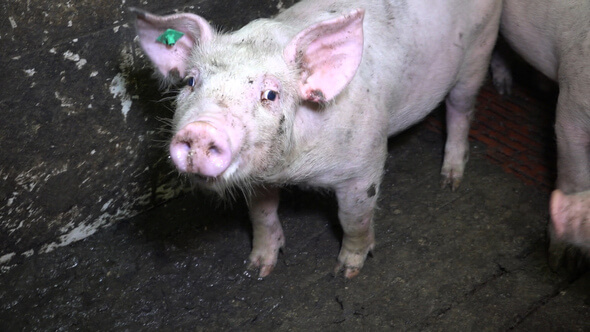
When you put pigs into small, barren pens with hard slatted floors causing their joints to hurt; when female pigs spend most of their lives in gestation crates that are just slightly larger than their own bodies; when animals have to exist surrounded by excrement and the stench of ammonia constantly stings their lungs; when piglets are separated from their mothers far too early and they bite each other bloody out of frustration or aggression—would they be happier if you provided them with some litter, a little more space to move around in, or an open drinking trough before finally hauling them off to the slaughterhouse?
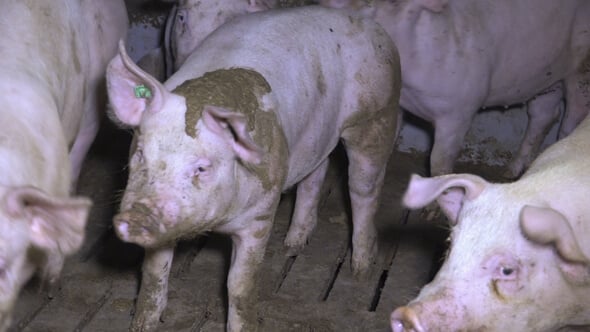
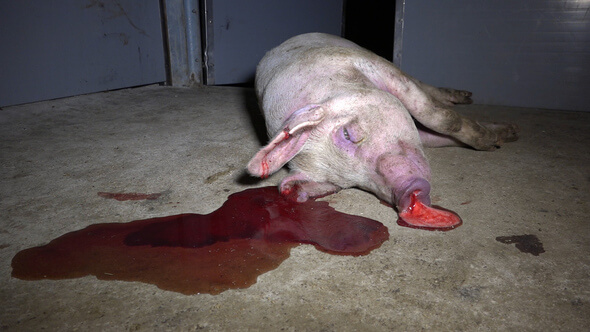
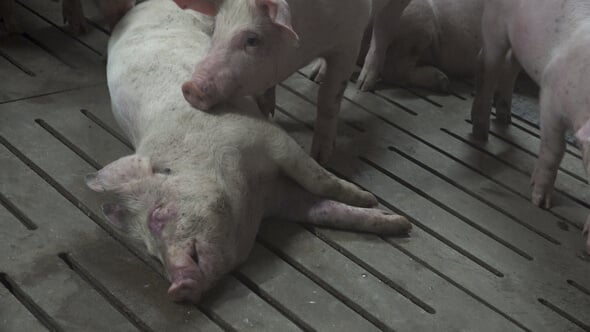
This is exactly what the meat industry and almost all supermarkets would have you believe. The labels on packages of meat sold at the supermarket promise a “transition to more animal-friendly housing.” But in reality, not even the minimal improvements mentioned above are required. The text goes on to state, “This does not mean that the product you buy originated entirely on farms taking part in the Initiative for Animal Welfare” (Initiative Tierwohl).
This is not what transparency looks like.
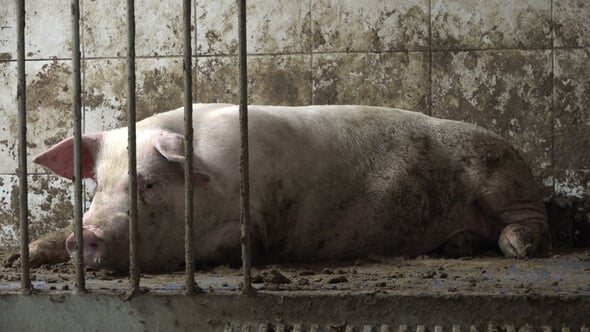
PETA Germany's footage makes the promises of the Initiative for Animal Welfare even more implausible
There is very little improvement when measured against the statutory standards. The footage shows pigs who are kept on hard slatted floors and covered with excrement crammed together with other animals in small, barren pens.

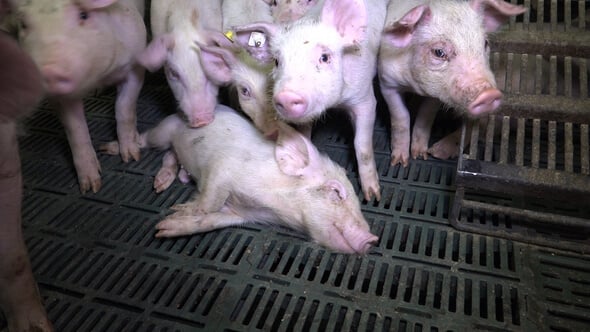
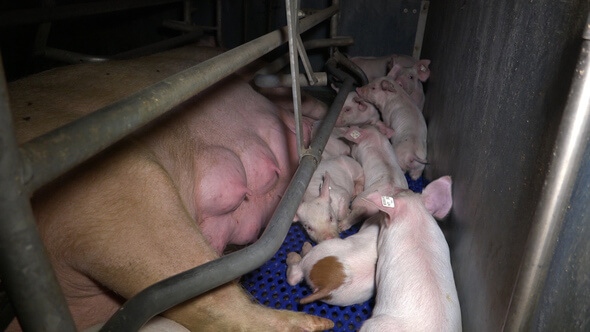
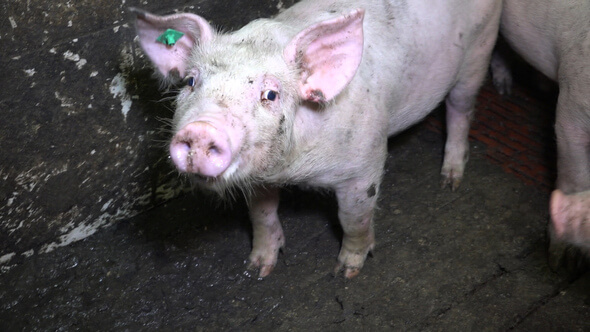
Coughing animals and animals with gnawed-off tails or scrotal or umbilical hernias or countless other injuries do not appear to have received appropriate veterinary care. The animals fight and injure each other out of frustration with the severe lack of space—the cramped housing conditions result in many bite wounds.
According to the standards put forth in the Initiative for Animal Welfare, sows may be routinely kept in gestation crates—which causes these intelligent animals enormous suffering.
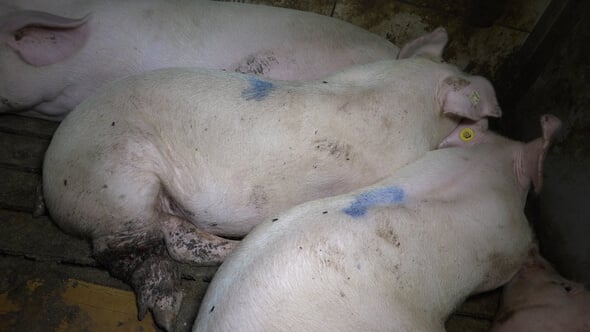
Similar to conditions on farms that are not part of the Initiative for Animal Welfare, the so-called “carcass pits” are filled with dead sows and piglets. Intensive veterinary care that could save animals’ lives is not cost-effective and therefore not provided.
Here, each animal is a product—and this product has to make a profit.
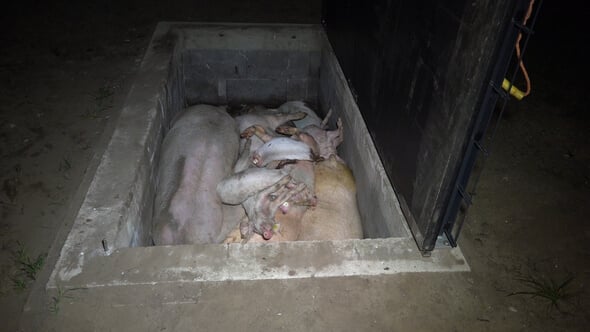
PETA Germany blew the whistle on seven farms that were taking part in the Initiative for Animal Welfare because of documented violations of the Animal Welfare Act and the Animal Welfare for Farmed Animals Act (Tierschutznutztierhaltungsverordnung).
What is the Initiative for Animal Welfare?
The Initiative is a joint project of the farming, meat, and retail food industries that has aimed to provide “greater animal welfare” for pigs and poultry since 2015. For every kilogram of pork or poultry meat, 4 cents is paid to the Initiative, which rewards farmers for “the implementation of animal welfare measures.”

This initiative should not be confused with the “Animal Welfare Initiative,” which was initiated by the Ministry of Agriculture. Although the ministry’s project was partially based on it, the Initiative for Animal Welfare is a two-tier label that has often been criticized for its lax criteria and so-called “mandatory volunteerism” (Verbindliche Freiwilligkeit). Minister of Agriculture Christian Schmidt is known for his contacts in the meat lobby and for thwarting animal welfare in Germany wherever possible. A label based on mandatory volunteerism instead of much-needed legislative improvements is just further proof of this.
The ones who suffer because of campaigns like this are always the animals, who live in misery on the farms.
You Can Help!
Question labels and seals of approval, as animal welfare and profits are usually mutually exclusive. To make a significant difference for animals, please don’t buy any animal-derived foods, such as meat, milk, eggs, or honey. All these products cause enormous suffering.
Start saving lives today by taking the vegan pledge.
